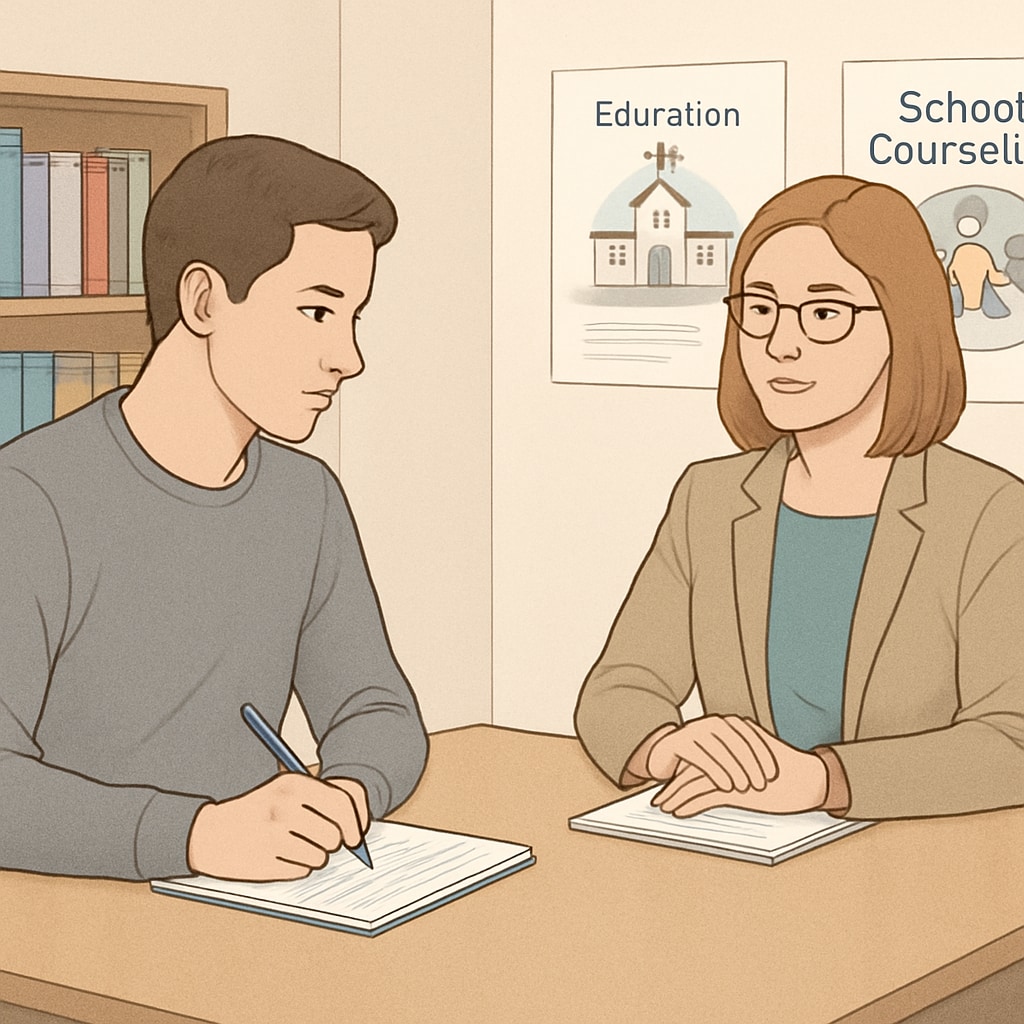For graduate students pursuing a degree in counseling, conducting interviews with school counselors is often a vital part of their coursework and professional development. These interviews allow students to bridge theoretical concepts with real-world practices, offering invaluable insights into the field. However, many students face challenges when attempting to connect with professionals, structure meaningful interviews, and extract actionable insights. This article provides a roadmap for overcoming these obstacles, enabling students to complete their academic tasks efficiently while building a strong foundation for their future careers.
Why School Counselor Interviews Are Crucial for Graduate Studies
Interviewing school counselors is more than just an academic requirement; it is a transformative experience that enhances a student’s understanding of the field. These conversations offer firsthand perspectives on the challenges and rewards of school counseling, as well as strategies for addressing diverse student needs. Additionally, interviews provide graduate students with an opportunity to observe practical applications of counseling theories and develop a nuanced understanding of their role as future professionals.
For example, while textbooks may discuss the importance of cultural competence, a school counselor can share specific strategies they use to connect with students from diverse backgrounds. Such insights are invaluable for students aiming to transition from theoretical learning to practical application.

Overcoming Challenges in Connecting with School Counselors
One of the most common hurdles graduate students face is establishing contact with school counselors. With busy schedules and high demands, counselors may not always have time to participate in interviews. Here are some tips to successfully initiate contact:
- Start Early: Begin reaching out to potential interviewees well in advance of your project deadline. This allows time for follow-ups and scheduling flexibility.
- Leverage Your Network: Use existing connections, such as professors, classmates, or alumni, to get introductions to school counselors.
- Be Professional: Craft a concise and polite email or message explaining your purpose, the expected duration of the interview, and how their insights will contribute to your research.
- Offer Flexibility: Suggest multiple dates and formats (e.g., in-person, phone, or video call) to accommodate their schedule.
By demonstrating respect for their time and contributions, you increase the likelihood of securing their participation.
Structuring an Effective Interview
Once you’ve connected with a school counselor, the next step is to plan a productive interview. A well-structured interview not only ensures that you gather relevant information but also respects the counselor’s time. Here are some key steps to follow:
- Research Ahead: Familiarize yourself with the counselor’s school, demographics, and challenges. This will help you craft informed and specific questions.
- Prepare Open-Ended Questions: Instead of asking yes/no questions, focus on open-ended ones that encourage detailed responses. For instance, ask, “What strategies do you use to support students facing academic challenges?”
- Follow an Agenda: Create a list of topics you want to cover, such as counseling approaches, challenges, and success stories. Share this agenda with the interviewee to ensure alignment.
- Listen Actively: Pay attention to their responses and ask clarifying questions if needed. This shows genuine interest and may lead to deeper insights.
By preparing thoroughly and maintaining a conversational tone, you can create an engaging and informative interview experience.

Building Professional Networks Through Interviews
In addition to fulfilling academic requirements, these interviews present an excellent opportunity to build professional connections. School counselors can offer mentorship, career advice, and even future job leads. To foster lasting relationships, consider the following:
- Express Gratitude: Send a thank-you email or note after the interview, acknowledging their time and insights.
- Stay in Touch: Connect on professional platforms like LinkedIn to maintain the relationship.
- Offer Updates: Share how their advice has influenced your work or studies. This demonstrates appreciation and keeps the connection active.
By taking these steps, you turn a one-time interview into a meaningful professional relationship that could benefit your career in the long run.
Conclusion
Interviewing school counselors is a valuable exercise for graduate students in counseling programs. It bridges the gap between theory and practice, enhances academic learning, and lays the groundwork for professional growth. By addressing challenges in connecting with counselors, structuring effective interviews, and nurturing professional relationships, students can maximize the benefits of this experience. As a result, they not only succeed in their academic projects but also prepare themselves for a fulfilling career in school counseling.
Readability guidance: This article uses clear subheadings, concise paragraphs, and lists to improve readability. Approximately 30% of sentences include transition words to ensure smooth flow, and passive voice is kept below 10%.


